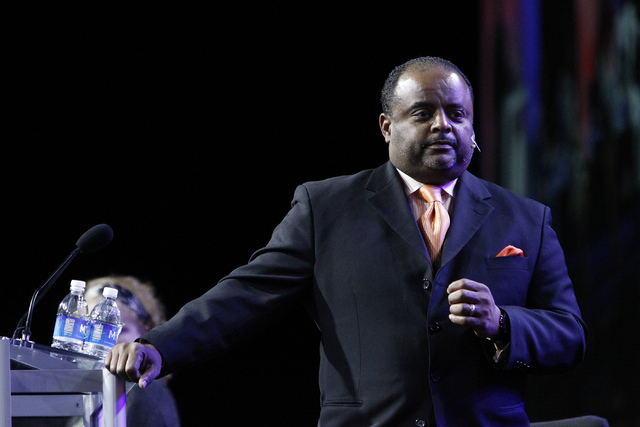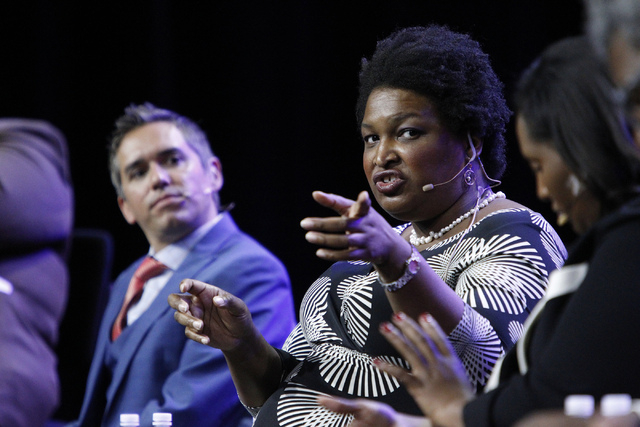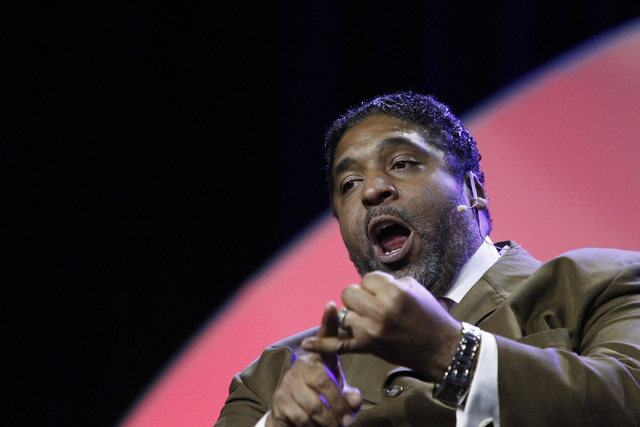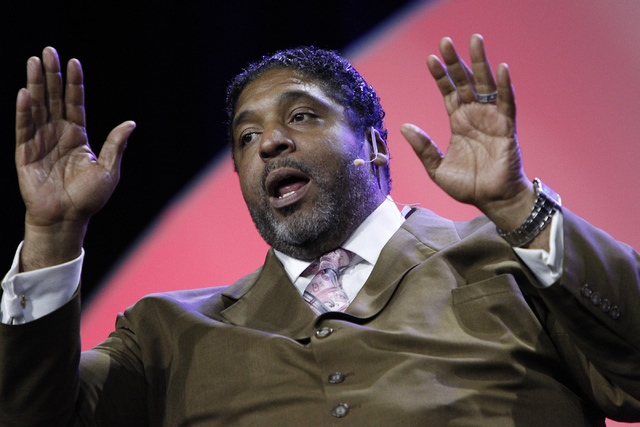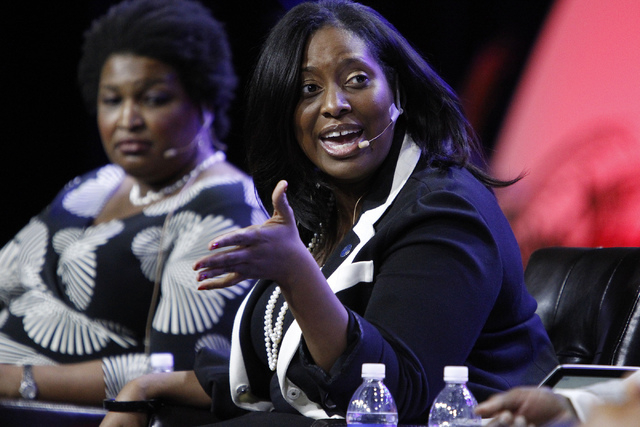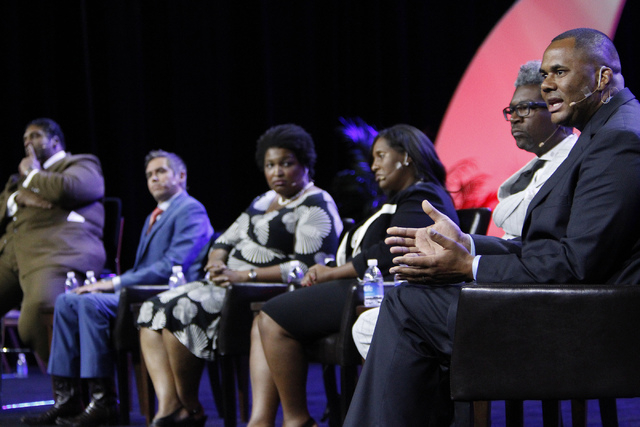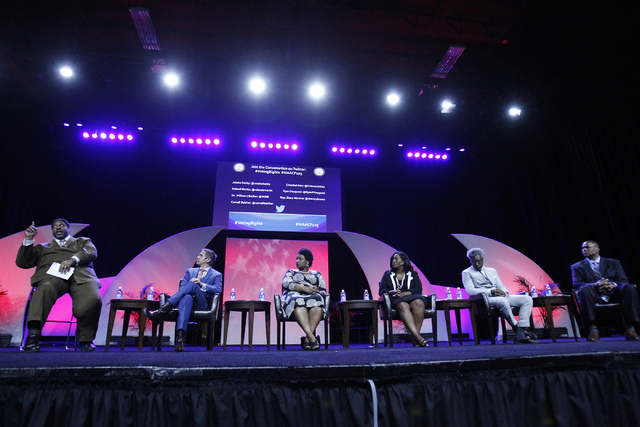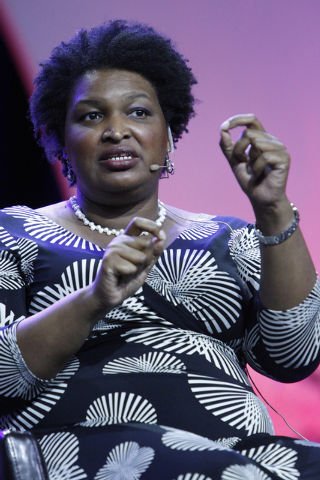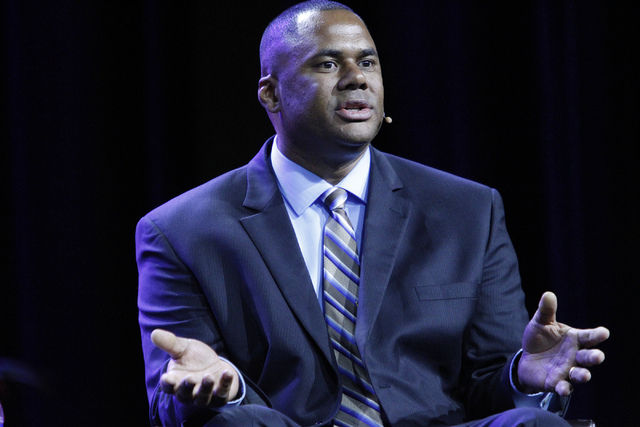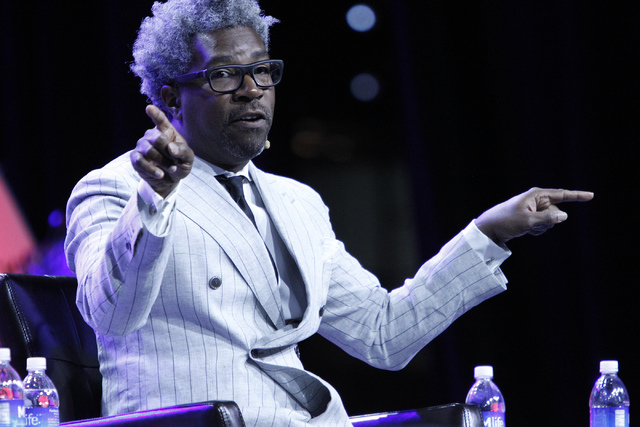NAACP panel: Quit quashing minority vote
State legislatures in the past few years have made more than 250 attempts to pass laws to roll back voting rights and 22 states have approved such laws, NAACP panelists said Tuesday, accusing Republicans of trying to quash the growing minority vote.
Political power first shifted in the 2010 election when the GOP took majority control of 16 state legislatures and more Republicans became governors, according to the civil rights organization.
Now, 29 Republicans are governors, including Nevada’s Gov. Brian Sandoval, who’s expected to win re-election this year. Last year, he vetoed a bill to allow same-day voter registration during the two-week early voting period and until 5 p.m. the Friday before a Tuesday election.
“If you want to know whether there’s voter suppression in the United States, it’s because state legislatures are making it happen,” said Rep. Stacey Abrams, the Democratic minority leader of the General Assembly in Georgia, who sat on the NAACP panel.
Most of the changes involve requiring voter IDs and limiting early voting periods, which are popular with minorities and casual voters.
Also, some cities and counties have closed polling places in poor neighborhoods, making it more difficult for some minorities to vote.
Abrams and other panelists discussing black voter turnout and voter suppression said midterm elections, including Nov. 4 this year, are more important than voting for president because local and state officials are the ones making many of the voting rights decisions on the ground.
“If you want a voice you have to make sure to participate,” Abrams said.
The annual NAACP convention is being held in Las Vegas for the first time. In one of the highlights of the meeting at Mandalay Bay, Vice President Joe Biden will speak to the 4,000 delegates today.
In another setback for voting rights, last year the U.S. Supreme Court on a 5-4 vote invalidated Section 5 of the federal Voting Rights Act that required certain states with a history of discrimination to get federal clearance before changing voting laws and practices.
Ryan Haygood, director of political participation for the NAACP Legal Defense and Education Fund, said the act had for decades protected African-Americans and other minorities from discrimination at the ballot box. But now, he said, it’s up to voters to fight back at the local level.
“In the absence of Section 5, we’ve seen a host of local jurisdictions do things that will be very harmful to local voters,” Haygood said.
Haygood gave the example of Baker County in Georgia. He said the county closed four of five polling places in a poor area, saying it was a cost-saving measure to save $8,000. Haygood said the polling places were each 20 miles apart.
“We’ve seen Baker counties happening all over the place,” he said.
Haygood said Section 5 of the Voting Rights Act had blocked more than 1,000 voter suppression efforts over the years, but now it’s up to minorities “to be the eyes and ears on the ground” to stop suppression.
“Millions of African-Americans are especially vulnerable in places that were previously covered by the Voting Rights Act,” he said.
Ironically, the new restrictions come after black voters surpassed whites in the turnout rate in the 2012 election for the first time in U.S. history: 66.2 percent compared to 64.7 percent, according to the U.S. Census.
Also, in 2008, black voter turnout helped Barack Obama become the nation’s first African-American president.
Jotaka Eaddy, senior adviser to the director of the NAACP’s voting rights group, provided the statistics about more than 250 attempts since 2011 by state legislatures to suppress voting rights. She said the efforts have been aimed at states with the highest turnout of black and Latino voters.
For example, seven of 11 states with the highest black voter turnout in the 2008 election have new voter suppression laws, she said. And nine of 12 states with the highest Latino population have similar new laws as well.
“This nation is getting more brown and more black and we are going to become the majority,” she said. “The numbers are there. The power is there. The fear is there. So they have an unprecedented strategy to suppress our power.”
The Obama administration opposes new restrictions. Earlier this month, Attorney General Eric Holder said the U.S. Department of Justice planned to intervene in court challenges to laws that limit voting in Wisconsin and Ohio.
This year’s convention coincides with the 50th anniversary of the Civil Rights Act and “Freedom Summer,” an effort to register blacks to vote in the South. It’s also the 60th anniversary of the Brown v. Board of Education case when the Supreme Court declared unconstitutional state laws that created separate public schools for blacks and whites.
Contact Laura Myers at lmyers@reviewjournal.com or 702-387’-2919. Find her on Twitter: @lmyerslvrj.



